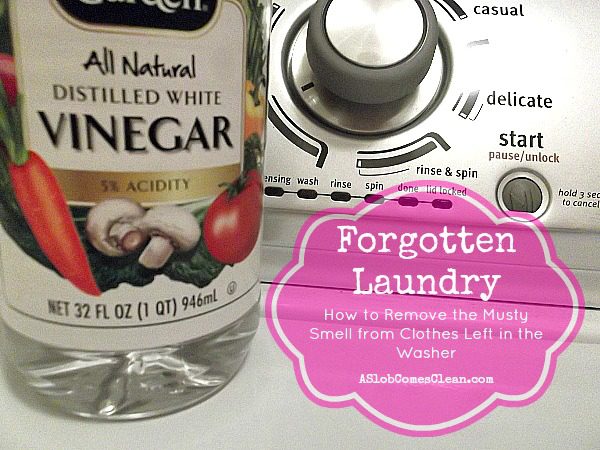We’ve all been there: the whirlwind of daily life leaves us scrambling, and sometimes, that means forgetting to transfer laundry from the washer to the dryer. While it might seem like a minor oversight, leaving wet clothes languishing in the washing machine can have some unpleasant consequences. This article will delve into the potential problems associated with this common laundry mishap, explore the science behind mildew and musty odors, and provide practical tips on how to prevent these issues from ruining your fresh laundry.
We’ll cover the reasons why leaving laundry in the washer is problematic, the specific dangers of mildew growth, and the unpleasantness of musty odors. Finally, we’ll discuss the importance of promptly transferring clothes to the dryer and offer strategies for keeping your laundry clean and smelling fresh.
Laundry Left in Washer
Leaving wet clothes in the washing machine creates a breeding ground for bacteria, mold, and mildew. The warm, damp environment is ideal for these microorganisms to thrive and multiply rapidly. This can lead to several issues, including unpleasant odors, fabric damage, and potential health concerns.
One of the primary reasons why it’s important to remove wet clothes promptly is that they retain moisture. This trapped water provides a perfect habitat for bacteria and fungi to flourish. As these microorganisms grow, they release enzymes that break down fabric fibers, leading to weakening and deterioration over time. This can result in holes, tears, and a general loss of garment integrity.
Furthermore, leaving laundry in the washer can contribute to the spread of allergens and irritants. Mold spores and bacteria can become airborne and settle on surfaces in your home, potentially triggering allergies or respiratory problems.
Mildew Growth

Mildew is a type of fungus that thrives in damp environments. When wet clothes are left in the washing machine, mildew spores readily colonize the fabric and the interior surfaces of the appliance. These fuzzy patches often appear as black, green, or white spots on clothing and can spread quickly if not addressed promptly.
Mildew growth is not only aesthetically displeasing but also poses potential health risks. Some types of mildew produce mycotoxins, which are harmful substances that can cause allergic reactions, respiratory problems, and even skin irritation. Inhaling these toxins can lead to coughing, wheezing, and difficulty breathing.
Musty Odors
The characteristic musty odor associated with wet laundry is a result of the breakdown of organic matter by bacteria and fungi. As microorganisms consume the moisture and nutrients present in the fabric, they release volatile organic compounds (VOCs) that contribute to the unpleasant smell.
Musty odors can be difficult to eliminate once they have set in. They tend to permeate fabrics and linger even after washing. This can make it challenging to get rid of the odor completely, leaving your clothes smelling stale and unappealing.
Preventing Mold and Odor

Fortunately, there are several simple steps you can take to prevent mildew growth and musty odors from ruining your laundry:
- Transfer Clothes Promptly: The most effective way to avoid these problems is to remove wet clothes from the washing machine as soon as the cycle ends.
Dry Thoroughly: Ensure that your clothes are completely dry before storing them. Use a dryer on a high heat setting or hang them in a well-ventilated area where they can air out properly.
Clean Your Washer Regularly: Wipe down the inside of your washing machine after each use to remove any residual moisture and detergent buildup. Perform a monthly deep clean by running an empty cycle with hot water and vinegar to kill bacteria and prevent mildew growth.
Dryer Importance
The dryer plays a crucial role in preventing mildew and musty odors.
- Heat Kills Microorganisms: The high heat generated by the dryer effectively kills bacteria, mold spores, and fungi that may be present on wet clothes.
- Rapid Drying: A dryer quickly removes moisture from fabrics, inhibiting the growth of microorganisms that thrive in damp environments.
Conclusion
While forgetting to transfer laundry from the washer to the dryer can happen to anyone, it’s important to understand the potential consequences. Mildew growth and musty odors can not only damage your clothes but also pose health risks. By following the tips outlined in this article, you can effectively prevent these issues and keep your laundry fresh, clean, and smelling its best. Remember, prompt action is key!



